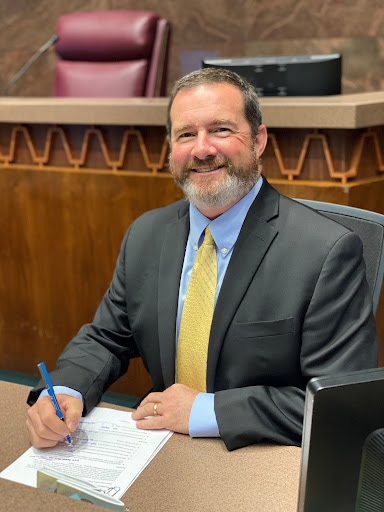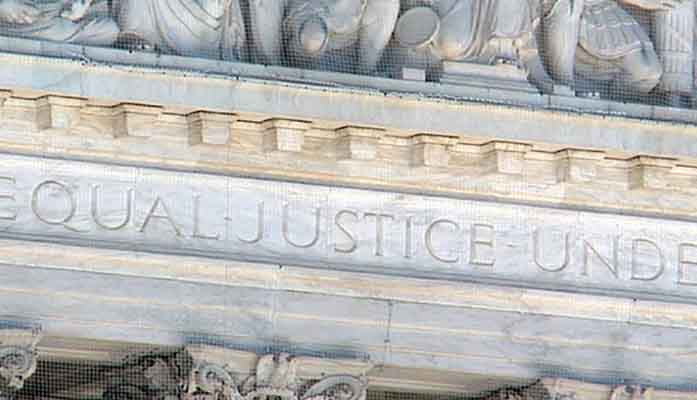
by Terri Jo Neff | Oct 2, 2021 | News
By Terri Jo Neff |
While COVID-19 damaged much of the state’s tourism for most of 2020, the Arizona State Parks and Trails still managed to pump $272 million into the state and local economies during Fiscal Year 2020, according to a report released last week by Gov. Doug Ducey’s office.
“Arizona’s state parks are second to none! In addition to their unbeatable views, recreational activities and family-friendly opportunities, they have a significant impact on our state economy,” Ducey tweeted on Sept. 30.
The 82-page report about the economic contributions and impacts of the state’s 21 parks, 10 historic parks, and 3 natural areas covers Oct. 1, 2019 through Sept. 30, 2020. The data comes from the Arizona State Parks and Trails in collaboration with the Regional Economic Analysis Program at the University of Arizona and the Hospitality Research & Resource Center at Northern Arizona University.
The economic contribution of spending by nearly 3,000,000 visitors in and around Arizona’s 34 state park properties was $449 million, including multiplier effects. Of that, $272 million was counted toward Arizona’s gross state product, supporting 4,173 jobs statewide.
Included in the report are details about how Arizona State Parks impacts the 13 counties home to at least one state park. Yavapai County has seven state parks -the most in Arizona- while Pinal and Santa Cruz each have four. Greenlee and Maricopa are the only counties with none.
According to the report, most state parks stayed open during the pandemic, but temporary closures were implemented at Kartchner Caverns and the 10 historic state parks as a safety precaution. The closures caused visits at those locations to plummet 50 percent from FY2019, but combined visitors to the other state parks resulted in a net one percent increase compared to 2019.
Lake Havasu State Park in Mohave County counted the most visits at 533,757 in FY2020. In fact, the report found the top five most visited parks accounted for 53 percent of the total statewide total.
Visitor counts at Kartchner Caverns State Park and the Tombstone Courthouse State Historic Park, the two state parks in Cochise County, took especially harsh hits during FY2020 due to mandated temporary closures. The parks saw a combined 161,010 visitors, down significantly from the nearly 220,000 visitors the year before.
When averaged out, the visitor count across the system declined 7.6 percent. The majority of the visits occurred in the first six months of the fiscal year before COVID-19 shutdowns occurred across the United States.
As part of the state’s post-pandemic recovery efforts, Ducey has focused on promoting the benefits of Arizona’s park system for its relatively safe and inexpensive outdoor options.
The report released by the governor’s office also highlighted the growth in popularity of Arizona State Parks from FY2014 when 2,310,349 visitors were counted, to 2,971,844 visitors in FY2020. And the spending by non-local visitors during that same period increased by 20 percent.
Several changes were made to park operations over those years. For instance, Lyman Lakes State Park in Apache County went from seasonally hours to being opened year-round, and Oracle State Park in Pinal County went from weekends-only hours to being opened seven days a week.
In July, Ducey announced $20 million in American Rescue Plan federal funding was being earmarked for capital improvements at various parks. Another $5 million will be spent with the State Parks Heritage Fund for new open space development, restoration or renovation projects, historic preservation, and outdoor education program.

by Corinne Murdock | Oct 2, 2021 | Education, News
By Corinne Murdock |
2021 marks the ten-year anniversary of education savings accounts (ESAs) in Arizona. The state’s ESA policy, formally known as Empowerment Scholarship Accounts, was established in 2011. As of this year, nearly a quarter of Arizona children are eligible for an ESA. The legislature has consistently fought to increase that rate – especially during this past legislative session.
The push for ESAs began with the Goldwater Institute. Their efforts led to the passage of SB1553, the first ESA policy in Arizona history. In a report, the Goldwater Institute highlighted three major factors that contributed to the ESA program’s success. The increasing demand for ESAs, financial benefits, and continued improvements all reportedly allowed the ESA program to grow.
Not only has the ESA program grown – supplemental resources have grown, too. The Goldwater Institute partnered with EdChoice to produce an interactive map to allow families to navigate their educational options. The map informs parents of state and local eligibility zones, the grade awarded each public school, and private school options. It also offers the location, contact information, grade range, tuition and fees for private schools.
The Goldwater Institute and EdChoice also released an informational packet discussing the track record, controversies, and details of the ESA program.
The ESA program has received significant pushback over the years. Activist groups like Save Our Schools Arizona (SOSA) view the ESA program as a drain on public school funding, which they claim is especially harmful for low-income families and in rural areas that already struggle with low funding.
However, research shows that per-pupil funding has increased by over $1,600 since the ESA program was put in place. This information was collected from reports by the Joint Legislative Budget Committee and the Arizona Department of Education (ADE).
In 2018, voters were presented with the option to expand ESAs as legislated in SB1431 with a ballot initiative, Proposition 305. It was the biggest move to expand the ESA program: if passed, all students would be eligible for ESAs. Over 64 percent of Arizonans voted against it.
Legislators attempted to pass SB1452 this year, which would’ve opened up ESAs to low-income families – but it stalled in the House after Senate passage. The House later shot down a budget provision attempting to revive the bill. Three Republican Representatives joined their Democratic colleagues to kill it: Michelle Udall (R-Mesa), Joel John (R-Buckeye), and Joanne Osborne (R-Goodyear).
This past year, the legislature passed laws enhancing the ESA program.
These laws reduced the waiting period for ESA applicants, dropped a punitive measure forcing parents to effectively pay twice for unapproved items, rescinded the ADE’s authority to prematurely enact punitive measures against parents, allowed online attendance to count toward time spent in a public school, allowed families to supplement their insurance coverage for special needs therapies, and reduced the processing time for applicants from 45 to 30 days.
Corinne Murdock is a reporter for AZ Free News. Follow her latest on Twitter, or email tips to corinne@azfreenews.com.

by Corinne Murdock | Oct 2, 2021 | News
By Corinne Murdock |
Cochise County Recorder David Stevens disagrees with the assurances from Maricopa County election officials that the recently-released audit was entirely inaccurate. Stevens made this assessment on KFYI’s James T. Harris radio show. He honed in on the purported issues presented by Maricopa County’s signature verification process.
“We have standards in this field. I was in this field for 30 years, they go back decades that dictate what are good practices – and they [Maricopa] show none of them,” said Stevens.
Stevens explained that his county’s signature verification process was very different from Maricopa County’s. That caused him to question the strength of Maricopa County’s results.
“They’re verifying the scanned copy of the signature with what’s in their file. What I do in my county is we actually have the envelope in hand, looking at the signature on screen, because there are indicators in the signature that help to determine if it’s a valid signature or not. But you saw the scans if you watched the presentation on Friday, [of] how low quality of the scan was. And those indicators are very small. Like when you stop – when you’re writing your name and you stop, and that one letter you start up again – that kind of stuff disappears on a scan, and it makes it harder if not impossible to verify.”
AZ Free News reached out to Maricopa County Recorder Stephen Richer about these concerns. He didn’t respond by press time.
Stevens said that he was also astounded by the other problems discovered by auditors – like the fact that countless people used the same log-in credentials.
However, Stevens said that the more troublesome aspect of the audit concerned the election officials themselves. He cited the recent resignation of Maricopa County Supervisor Steve Chucri as an example, who quit following the audio leak of a phone call in which he claimed that his county knew their audit and the Dominion voting machines weren’t trustworthy.
“Why did the elected officials obstruct this audit?” asked Stevens. “We’re elected to serve the public, not to serve ourselves. You see what happens when you get caught on a phone call you don’t know what’s being recorded, you don’t know what comes out. They were afraid for themselves.”
Maricopa County officials disagree with the audit because of who was put in charge: Cyber Ninjas. Prior to the Arizona Senate’s contract, the technology security company had never conducted any election-related work, including audits. This is something that Richer and others have reiterated: their reluctance to cooperate comes from their distrust of Cyber Ninjas’ intentions and competence.
Stevens said that he couldn’t see what good reasons the county could have for the issues presented in the audit.
He added that officials shouldn’t be deleting files, referencing a claim made during the Senate audit hearing last week. Maricopa County responded that they hadn’t deleted the files: they’d archived them elsewhere, something which the Senate hadn’t subpoenaed.
When asked, Stevens said there likely wouldn’t be any remedies to improve elections before the 2022 midterms.
“I think the best solution going forward is a random, constant audit going forward,” said Stevens.
Maricopa County created a webpage to address various concerns and claims made about their election processes.
Attorney General Mark Brnovich promised to have his Election Integrity Unit (EIU) investigate some of the findings in the Senate audit. He issued a follow-up request for the supporting documents to the audit earlier this week.
“The Arizona Senate’s report that was released on Friday raises some serious questions regarding the 2020 election,” said Brnovich. “Arizonans can be assured our office will conduct a thorough review of the information we receive.”
Read the latest updates from the EIU here.
Corinne Murdock is a reporter for AZ Free News. Follow her latest on Twitter, or email tips to corinne@azfreenews.com.

by AZ Free News | Oct 2, 2021 | News
By AZ Free News |
On Friday, Governor Doug Ducey announced the appointments of James Drake, Ashley Villaverde Halvorson and Keith Miller to the Maricopa County Superior Court. These appointments are to fill vacancies created by the retirement of Judges Roger E. Brodman, Connie Coin Contes and Karen A. Mullins.
James “Jim” Drake has been serving as the nonpartisan, elected Chief Clerk and Counsel for the Arizona House of Representatives since 2015. In addition to overseeing 14 staff members, he works on questions of law regarding public records, parliamentary advice, constitutional issues, financial disclosure, and election law matters. Jim also works as of-counsel for Shannon and Fleming, P.C. in civil matters, particularly evidentiary hearings with self-represented litigants.
Prior to being elected Chief Clerk, Jim was the Assistant Secretary of State in the Secretary of State’s Office from 2009 to 2015. He oversaw approximately 140 employees under the State Law Library, State Elections, Business Services, and Archives and Public Records Divisions.
From 1996 to 2009, Jim held several positions in the Arizona House of Representatives, including Rules Attorney, Counsel to the Ethics Committee, Judiciary Committee Analyst, and Banking Committee Analyst/Staff Attorney. During his tenure as the nonpartisan Rules Attorney, Jim’s work was devoted almost exclusively to constitutional analysis under the Arizona and United States Constitutions. In addition, he has recommended and crafted amendments to cure constitutional infirmities on bills, consistently rendering nonpartisan opinions.

Jim also volunteers in the community, including as an active supporter of the Foundation for Blind Children. He has regularly participated with and guided blind and visually impaired children in a sailing expedition, Rim-to-Rim Grand Canyon hike, and swimming challenge from Alcatraz.
“Jim’s devotion to serving the public will serve the bench well. I am delighted to appoint him to the Maricopa County Superior Court,” said Governor Ducey.
Jim received his law degree from the California Western School of Law and his bachelor’s degree in Economics from the University of Arizona.
Ashley Villaverde Halvorson has spent her career at Jones Skelton & Hochuli, where she currently is a Partner. She primarily defends insurance companies in complex breach of contract and bad faith litigation. She also defends persons and businesses in personal injury/wrongful death litigation, including auto, premises, and dram shop liability. Additionally, Ashley was appointed as a Maricopa County Superior Court judge pro tem in 2018.
Ashley has been named a Southwest Super Lawyers Rising Star from 2013 to the present. In 2017, she was named one of the Top Lawyers Under 40 by the Hispanic National Bar Association.

Ashley has been a leader in improving diversity in the legal profession. She has been significantly involved with the Los Abogados Hispanic Bar Association, including serving as its President. Ashley has been a part of the Latina Mentoring Project since she was in law school and was its very first judicial pipeline candidate. She has also been an active member of the Hispanic National Bar Association and the State Bar of Arizona Committee on Minorities and Women in the Law. In 2020, she received the State Bar of Arizona’s Diversity and Inclusion Leadership Award, which annually recognizes an attorney, judge, employer, organization or bar association that significantly advances diversity and inclusion in the Arizona legal community through creative, strategic, or innovative efforts.
“Ashley’s civil litigation experience and involvement in the community will allow her to be a strong contributor, and I am pleased to appoint her to the Maricopa County Superior Court,” said Governor Ducey.
Ashley received her bachelor’s degree cum laude in Political Science and her law degree from Arizona State University.
Keith Miller has been serving as an Associate Attorney at Fennemore since January 2020, where he primarily practices in business litigation representing a variety of clients in matters pending in state and federal courts, as well as in mediation. Additionally, he has represented clients in matters pending before state and local administrative agencies.
From 2015 to 2019, Keith was an Assistant Attorney General at the Arizona Attorney General’s Office. He initially was part of the Federalism Unit in the Solicitor General’s Office, where he was involved with several pieces of high profile litigation involving constitutional issues. In addition, he served on the Opinions Review Committee and Ethics Review Committee. He then worked in the Environmental Enforcement Section as counsel to the Arizona Department of Environmental Quality.

Keith also worked as an Assistant Legal Counsel and Assistant Director of Career Services for Hillsdale College in Michigan from 2011 to 2015. During this time, he also coached the college’s mock trial team for 2 seasons, finishing a season with the college’s highest ranking ever.
Prior to that, Keith was a law clerk for U.S. District Court Judge James Teilborg in Phoenix from 2009 to 2011. Upon graduating from law school, Keith was an Associate Attorney at O’Melveny in Newport Beach, California from 2008 to 2009.
“Keith has a broad amount of legal experience from the private to public sectors, and I am thrilled to appoint him to the Maricopa County Superior Court,” said Governor Ducey.
Keith received his law degree from Columbia Law School and his bachelor’s degree magna cum laude in Mathematics and History from Hillsdale College.

by Terri Jo Neff | Oct 1, 2021 | News
By Terri Jo Neff |
The facts prove the Southwest border of the United States is not secure, despite what a Texas Congresswoman said Wednesday, according to Cochise County Sheriff Mark Dannels, who is asking for more Arizona National Guard deployment to the border.
On Thursday, Dannels told KFYI’s James T. Harris that comments by U.S. Rep. Sheila Jackson Lee (D-Texas) of the southwest border being both sovereign and secure is “100 percent not true,” as is her comment that the situation at the border is simply being “subjected to biased and unfair narratives for political purposes.”
Dannels noted there were 1,473,000 million encounters reported at the southwest border from Oct. 1, 2020 through Aug. 31, 2021, up 325 percent from the same period last year. Those who turned themselves in or were captured came from 164 countries, with 63 percent identified as citizens of somewhere other than Mexico, he added.
The sheriff also said 183,000 border crossers were taken into custody during that period in the Tucson Sector which includes 80 miles of border Cochise County shares with Mexico. He added that an estimated 115,000 “getaways” were reported, of which 85 percent appeared to be adult males traveling without family.
There have also been 162 migrants deaths along the 372-mile Arizona / Mexico border, all of which must be treated as an assumed homicide by the local sheriffs.
Those, says Dannels, are only a few of the “politically neutral” statistics which easily show the Biden Administration is not providing Americans a sovereign and secure border as Rep. Jackson Lee claims.
“Show me a stat that says we’re doing something well and I’ll sit back and apologize, but I’m not seeing it, I’m not experiencing it,” he told Harris.
Dannels said the reality is that drug smugglers and human traffickers are invading the United States, exploiting not only the southwest border but all communities across the country. And the Cartels are using border crossers to move a huge increase of drugs in as well.
To counter the lack of attention by President Joe Biden to the border, Dannels recently asked Gov. Doug Ducey and Major Gen. Kerry Muehlenbeck of the Arizona Department of Emergency and Military Affairs for more National Guard members at the border. In addition, Cochise County recently secured state funding for equipment and resources to address the local impact of the uncontrolled border.
In April, Ducey ordered several Arizona National Guard members to the border to assist county sheriffs with administrative and maintenance activities. This frees up more deputies to respond to calls and investigate crimes related to the border crisis.
The governor announced a one-year extension to the deployment, which was welcomed by Dannels, whose county is home to several sections of uncompleted border wall as well as the Douglas Port of Entry across from Agua Prieta, Sonora. What is needed now, said Dannels, is for a collective message directed at the White House.
“President Biden owns this, he’s the messenger on this,” said Dannels. “The blame game is over now, he’s been in office for 10 months. It’s time to accept responsibility and secure this border.”
HEAR SHERIFF DANNELS’ INTERVIEW HERE

by Corinne Murdock | Sep 30, 2021 | News
By Corinne Murdock |
The marine who lifted the two-week-old baby of an Afghan ally to safety from over a barbed wire fence at the Kabul airport in August, Lance Cpl. Hunter Clark, is reportedly under investigation by the military for partisan political activity. Clark’s potential crime? He accepted previous President Donald Trump’s invitation to appear onstage during a “Save America” rally in Georgia last Saturday.
Clark is part of the 24th Marine Expeditionary Unit. The baby’s father, Hameed, had been assisting the Marines with evacuation efforts. For the past five years, Hameed had served as a linguist and cultural advisor to the U.S. military. Clark’s efforts allowed Hameed’s newborn daughter to escape the fray and receive immediate medical treatment before being evacuated with her family to the Phoenix, Arizona area, as reported by AZ Family.
“That day I handed over my baby to a total stranger,” said Hameed. “The only thing I trusted is that he was a Marine, and that my daughter would be safe.”
Hameed said that he hoped to one day meet Clark.
“Oh my God. I’d give him a hug. He literally saved my daughter’s life,” said Hameed.
https://www.youtube.com/watch?v=qnY8izmtY8k
Task & Purpose first reported on the investigation. A spokesman for the unit, Captain Kelton Cochran, explained that they were investigating to determine if Clark’s appearance and speech violated any Department of Defense (DOD) policies.
“The 24th Marine Expeditionary Unit (MEU) has initiated a command investigation regarding LCpl Hunter Clark’s attendance at the event last weekend to determine if any DOD policies were violated,” said Capt. Kelton Cochran, a spokesman for the 24th MEU. “Any details pertaining to this incident are not releasable while the investigation is being conducted.”
https://www.youtube.com/watch?v=NBN_b3XJfxE
Though Cochran didn’t elaborate on which DOD policies were potentially violated, DOD policy updated a month into the Obama Administration in February 2008 does prohibit active-duty service members from speaking or appearing before a partisan political gathering. The potentially-relevant aspects of the policy are reproduced below:
A member of the Armed Forces on active duty shall not: […] Participate in partisan political fundraising activities[…], rallies, conventions (including making speeches in the course thereof), management of campaigns, or debates, either on one’s own behalf or on that of another, without respect to uniform or inference or appearance of official sponsorship, approval, or endorsement. Participation includes more than mere attendance as a spectator. […] Speak before a partisan political gathering, including any gathering that promotes a partisan political party, candidate, or cause.”
However, there is a certain degree of ambiguity afforded to this DOD policy:
Activities not expressly prohibited may be contrary to the spirit and intent of this Directive. Any activity that may be reasonably viewed as directly or indirectly associating the Department of Defense or the Department of Homeland Security (in the case of the Coast Guard) or any component of these Departments with a partisan political activity or is otherwise contrary to the spirit and intention of this Directive shall be avoided. (emphasis added)
Clark reportedly comes from a military family and attended school in Perry, Georgia.
Clark’s moment on stage was brief. He was overcome with emotion as he stated that he was the individual who saved the infant. He added it was one of the greatest things he’d ever done in his life.
“I’m here from Warner Robins, Georgia. I am the guy that pulled the baby over the wall, and it’s definitely probably one of the greatest things I’ve ever done in my entire life,” said Clark. “I just want to thank all of this support from all of y’all, it just really means a lot. And I’m glad to be home now today, thank you.”
Clark exited the stage to resounding applause and chants of “USA!” from the audience.
Trump introduced Clark after he’d announced that they’d reserved 13 seats in the front row of the rally to honor the 13 service members who lost their lives in the Kabul airport terrorist attack.
“Our hearts go out to the families of every service member that we have lost – and I have spoken to a lot of them. These are great, great people,” said Trump.
Corinne Murdock is a reporter for AZ Free News. Follow her latest on Twitter, or email tips to corinne@azfreenews.com.









